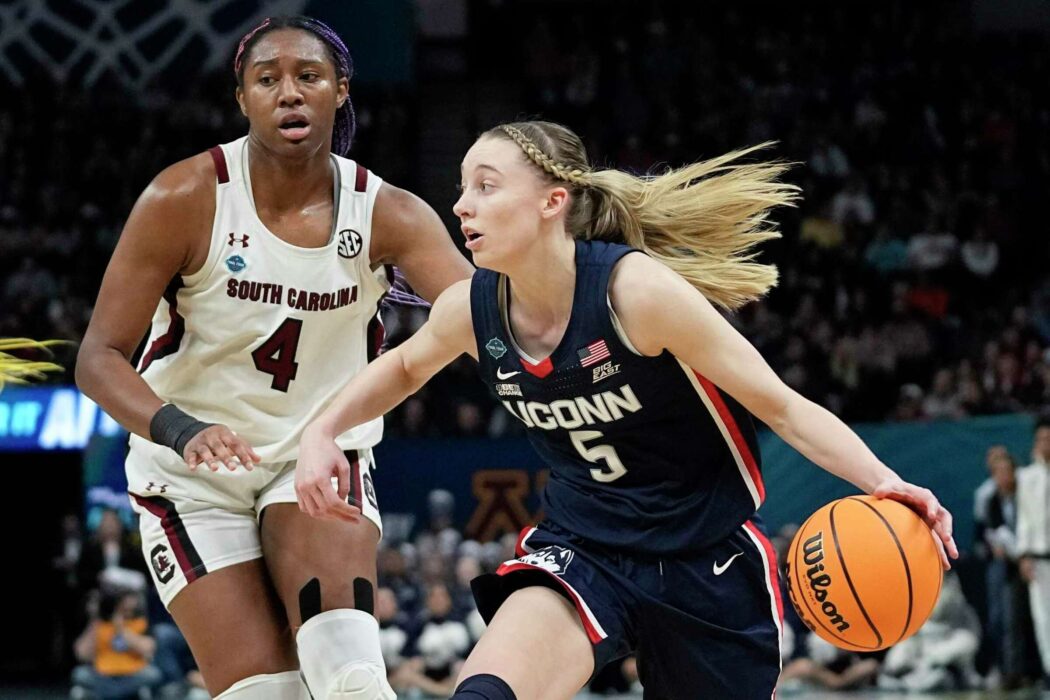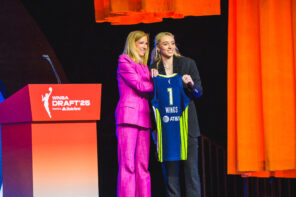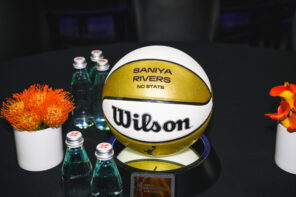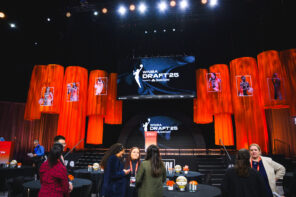Social media has done a lot of great things for the women’s basketball community. Platforms such as Twitter (shout out to Hoopstresses featuring our very own Lo!), Clubhouse and Spotify (shoutout to Khristina Williams of Women’s Sports Wednesday!) have filled the women’s sports/WNBA/NWSL vacuum in terms of coverage that mainstream media has inexplicably refused to fill.
Conversation around women’s sports has never been higher and athletes themselves have gracefully utilized social media to market themselves – both as athletes and as human beings.
But, of course, the good of social media always has to be equally acknowledged by its shortcomings as well.
Take for example the palpable backlash to South Carolina Gamecocks star and future top WNBA draft pick Aliyah Boston not receiving an ESPYs invite.
Boston was one of the nominees for the “Best College Athlete, Women’s Sports” award – an honor that was bestowed upon Jocelyn Alo – former Oklahoma Sooner two-time national champion and a native Hawaiian. Interestingly enough, once the slight became headline news, ESPN attempted to do an about face and invite Boston to the ESPYs. She declined.
It is no secret that the coverage Boston has received for becoming a face of women’s basketball has been a stark contrast (save for the pieces ESPN has done featuring her back in her native Virgin Islands) to white faces of the sport such as Sabrina Ionescu and Paige Bueckers.
ESPN had no issue bombarding us with photos of Boston in stunned shock following her missed attempt from point blank range at the end of the 2021 Final Four contest against Stanford. Boston knows what is up and she is not falling for the okie doke.
The reason ESPN gave for the lack of an invite had to do with the event being held this year at the Dolby Theatre in Los Angeles which only seats 3,400. Many WNBA arenas seat much more than 3,400. Plus, why are the ESPYs held in Los Angeles every year? As if New York City, Chicago, Atlanta and Miami do not exist.
A disturbing trend began happening on social media in the backlash to the Boston snub. Many began referencing Bueckers’ speech that she also gave at those very ESPYs where she implored the media to give their flowers to Black women.
“Performative” was often a word used to describe Bueckers’ speech by a few on social media. Others tried to automatically turn it into a Bueckers vs. Boston thing.
Except – Bueckers quote tweeted Boston’s tweet where she explained why she declined ESPN’s 11th hour invite. Bueckers then congratulated Alo on her ESPYs victory and her pinned tweet on her profile is one from the summer of 2020 where she talked about social injustice following the police killings of George Floyd and Breonna Taylor.
One can lament the disrespect Boston receives and continues to receives for being a great basketball player – and change agent – while being a Black woman. But for social media to attempt to turn Bueckers into another Sophie Cunningham while Bueckers and Boston are likely cool with each other is an indictment on social media.
Sometimes, we do not often talk about an unintended consequence of the women’s game (high school, college and pro) becoming more and more popular. It means more and more individuals attempting to infect the space with their NBA-style hot takes that because Boston got snubbed by the ESPYs it means she should have a beef with not only ESPN, but Bueckers as well.
Bueckers plays for a team in UConn that sits directly in ESPN’s Connecticut backyard. No one denies that there is a built-in coverage advantage. But Bueckers is not the problem. One would understand if she were completely silent and said or tweeted nothing about the Boston snub, then her own speech she gave at the ESPYs would look more performative.
But Bueckers understands the work she has to do to prove to the Black community that she is indeed a true white ally. Boston is well aware of how the coverage she receives as a Black woman will differ from that of a Bueckers, a Caitlin Clark or (before them) a Ionescu and Bueckers understands this as well.




